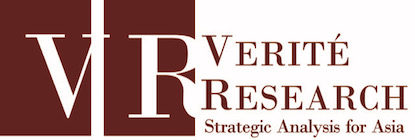Technology
Sri Lanka’s Information and Communication Technology (ICT) policy stems from the e-Sri Lanka project (2003), which was tasked with developing an ICT Roadmap for the country. It resulted in the establishment of the Information and Communication Technology Agency (ICTA) of Sri Lanka in 2003, which has informed much of the country’s ICT development. This includes efforts such as the ‘Local Languages Initiative’, which advocated the use of Information Technology (IT) in both Sinhala and Tamil, and the ‘Sri Lanka Open Data Initiative’, which looked to make government data more publicly accessible.
Presently, mobile phones (78.9%) are the most commonly used communication devices in households, followed by television sets (78.3%) and radios (68.9%). The surge in mobile phone subscriptions reflects the popularity of smartphone usage, of which 3.5 million were likely used in 2015. This has made it more difficult to track media consumption, as these devices are used for numerous activities, including free voice calls (VOIP), SMS, radio listening, web browsing, and accessing popular social media platforms such as Facebook, and Twitter, as well as messenger services like WhatsApp.
The Telecommunications Regulatory Commission of Sri Lanka (TRCSL) was established in 1996, to regulate and resolve disputes in the telecommunications field. However, subsequent governments have exploited it as a tool to meet political ends. For instance, former President Mahinda Rajapaksa partially assigned broadcast frequencies (TV and radio) to individuals and companies without any due process. Meanwhile, President Maithripala Sirisena also used the TRCSL to censor online content, including the blocking of Lanka E News in 2017, and the more recent island-wide ban on social media in response to communal clashes in Teldeniya and Digana.
Speaking at the Global Conference on Cyber Space in New Delhi 2017, Prime Minister Ranil Wickremesinghe openly expressed his support of net neutrality. But the current government has yet to take legislative action on this matter. This lack of oversight is reflected in the actions of private companies in the country. As recent as May 2018, Wijeya Newspapers announced its partnership with Airtel, a leading mobile network operator in Sri Lanka, which resulted in Airtel subscribers receiving free access to the online editions of the Daily Mirror, Lankadeepa, and Tamil Mirror.
In the social media space, several mobile service providers continue to offer ease of access to sites or apps such as Facebook, YouTube, Instagram and Twitter. In 2015 for instance, Dialog tied up with Facebook to offer a free month of access to the site. Even today, a quick search online will display multiple options for mobile phone users to easily access Facebook, among several other social media sites.
Sources
Colombo Telegraph. (2017). Sri Lanka’s ICT Policy Gone ‘Off Road.’
Retrieved from Colombo Telegraph on 25 July 2018.
Dissanayake, R. (2011). Information Communication Technology (ICT) Policy of Sri Lanka and its Impacts to Socioeconomic Development: A Review of Sri Lankan Experience.
Retrieved from A Review of Sri Lankan Experience. Journal of Education and Vocational Research on 25 July 2018.
Information and Communication Technology Agency.
Retrieved from ICTA on 25 July 2018.
Net Neutrality in Sri Lanka: An Obituary. (2018).
Retrieved from Read Me on 25 July 2018.
Rebuilding Public Trust – An assessment of the media industry and profession in Sri Lanka. (2016).
Retrieved from the Secretariat for Media Reforms on 25 July 2018.
RTI Reveals Lanka E News Blocked on Order from President’s Office. (2018).
Retrieved from Ground views on 25 July 2018.
Telecommunications Regulatory Commission of Sri Lanka. Functions and Responsibilities.
Retrieved from TRC on 25 July 2018.


